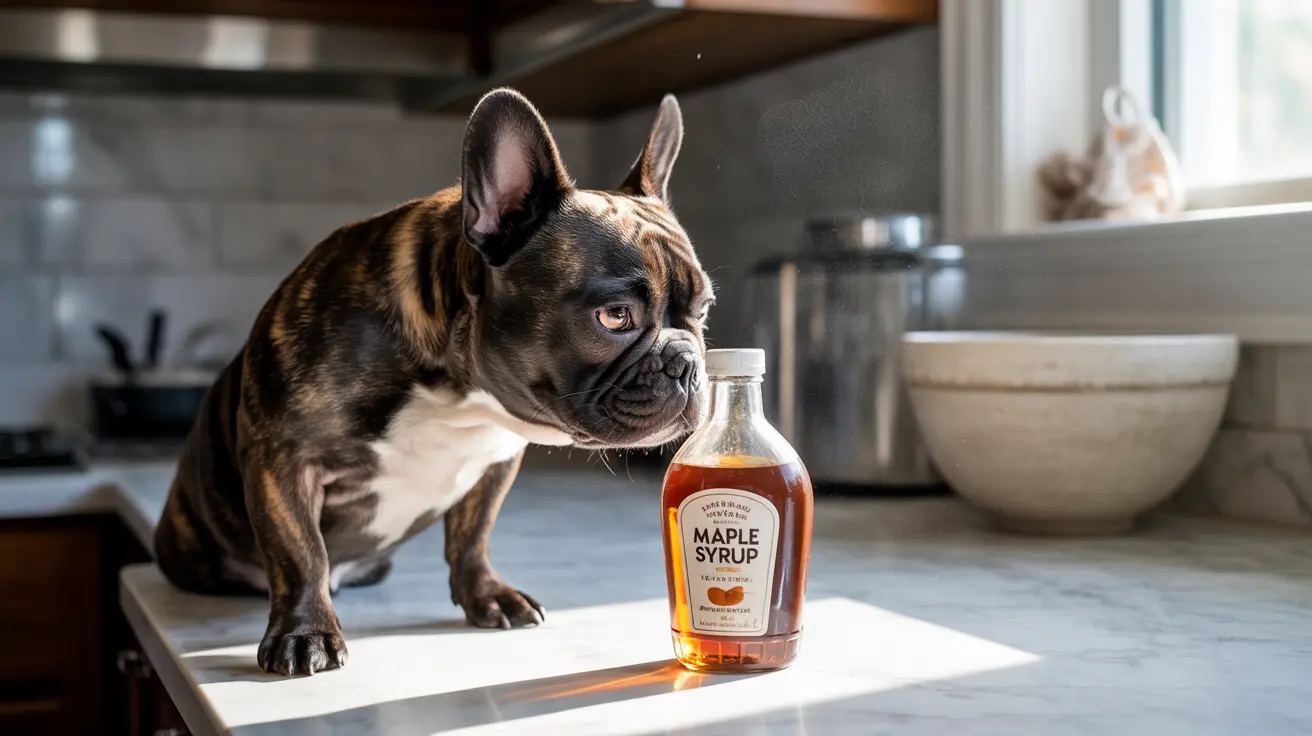As a pet owner, you might wonder about sharing sweet treats with your furry friend. When it comes to syrup, the answer isn't as simple as yes or no – but understanding the risks is crucial for your dog's health and safety.
In this comprehensive guide, we'll explore why syrup can be dangerous for dogs, which types pose the greatest risks, and what you should do if your dog consumes syrup, especially varieties containing harmful ingredients.
Understanding Different Types of Syrup and Their Risks
Not all syrups are created equal when it comes to canine safety. While pure maple syrup isn't immediately toxic, most commercial syrups pose significant health risks to dogs.
Pure Maple Syrup
Though natural maple syrup doesn't contain immediately toxic ingredients, its high sugar content makes it an unsuitable treat for dogs. Even small amounts can contribute to:
- Weight gain
- Dental problems
- Blood sugar spikes
- Digestive upset
Commercial and Artificial Syrups
These pose the greatest danger to dogs due to their ingredients:
- Artificial sweeteners (especially xylitol)
- Chemical preservatives
- Artificial flavors and colors
- Excessive refined sugars
The Dangers of Xylitol in Sugar-Free Syrups
Xylitol, commonly found in sugar-free or "lite" syrups, is extremely toxic to dogs. Even small amounts can cause:
- Severe hypoglycemia
- Liver failure
- Seizures
- Potential death
- Symptoms within 30 minutes to 2 hours
Health Impact of Syrup on Dogs
Immediate Effects
Dogs consuming syrup may experience:
- Vomiting and diarrhea
- Hyperactivity followed by lethargy
- Excessive thirst
- Stomach discomfort
Long-term Consequences
Regular syrup consumption can lead to:
- Obesity
- Diabetes
- Dental decay
- Joint problems
- Shortened lifespan
What to Do If Your Dog Eats Syrup
If your dog consumes syrup, take these steps:
- Check the ingredients list for xylitol
- Monitor for adverse reactions
- Contact your veterinarian immediately if:
- The syrup contained xylitol
- Your dog shows unusual symptoms
- Large quantities were consumed
Safe Alternatives to Syrup
Instead of syrup, consider these dog-safe treats:
- Fresh fruits (in moderation)
- Commercial dog treats
- Plain, cooked sweet potato
- Carrot sticks
- Dog-specific peanut butter (xylitol-free)
Frequently Asked Questions
Is it safe to give my dog pure maple syrup as a treat?
While pure maple syrup isn't toxic, it's not recommended due to its high sugar content and empty calories. Even small amounts can contribute to obesity and dental problems.
What are the dangers of feeding commercially processed syrup to dogs?
Commercial syrups often contain artificial sweeteners (especially toxic xylitol), preservatives, and excessive sugars that can cause immediate health issues and long-term complications in dogs.
How can I tell if a syrup contains xylitol, and why is it toxic to dogs?
Check the ingredients list for "xylitol," "sugar alcohol," or "sugar-free" labeling. Xylitol is toxic because it causes a dangerous drop in blood sugar and can lead to liver failure in dogs.
What symptoms should I watch for if my dog accidentally eats syrup with xylitol?
Watch for vomiting, lethargy, loss of coordination, seizures, and collapse. These symptoms can appear within 30 minutes to 2 hours after consumption and require immediate veterinary care.
What are healthier alternatives to syrup for rewarding my dog?
Choose dog-specific treats, fresh fruits like blueberries or apple slices (without seeds), or vegetables like carrots. Always verify that treats are safe for dogs and give them in moderation.
Remember, when it comes to your dog's health, it's always better to err on the side of caution. Stick to treats specifically designed for dogs, and consult your veterinarian if you have any concerns about your pet's diet.






